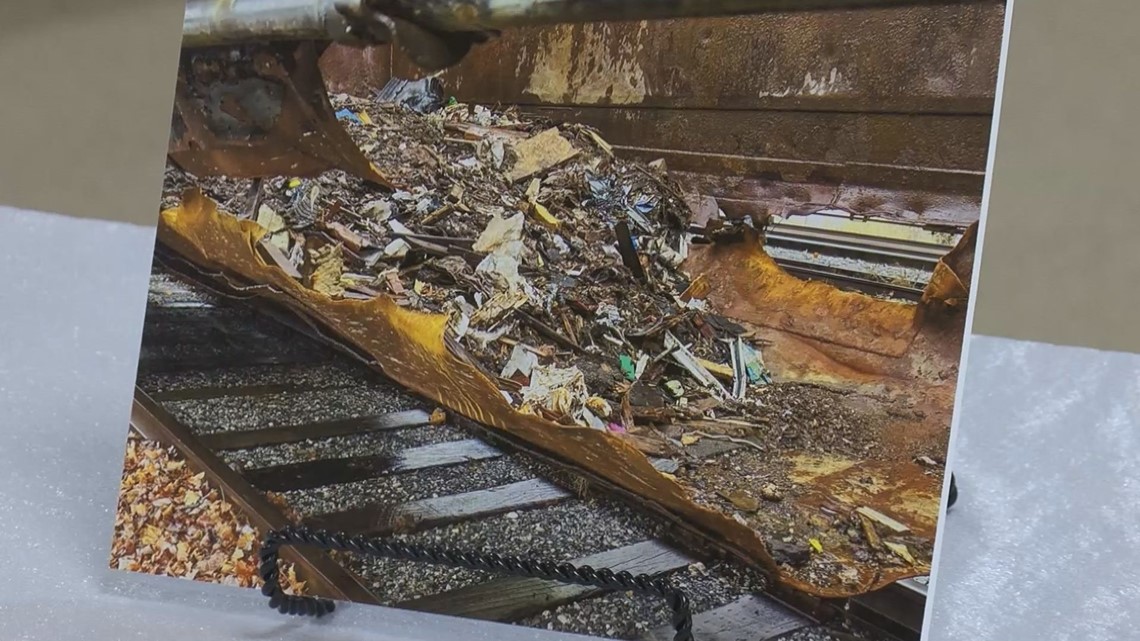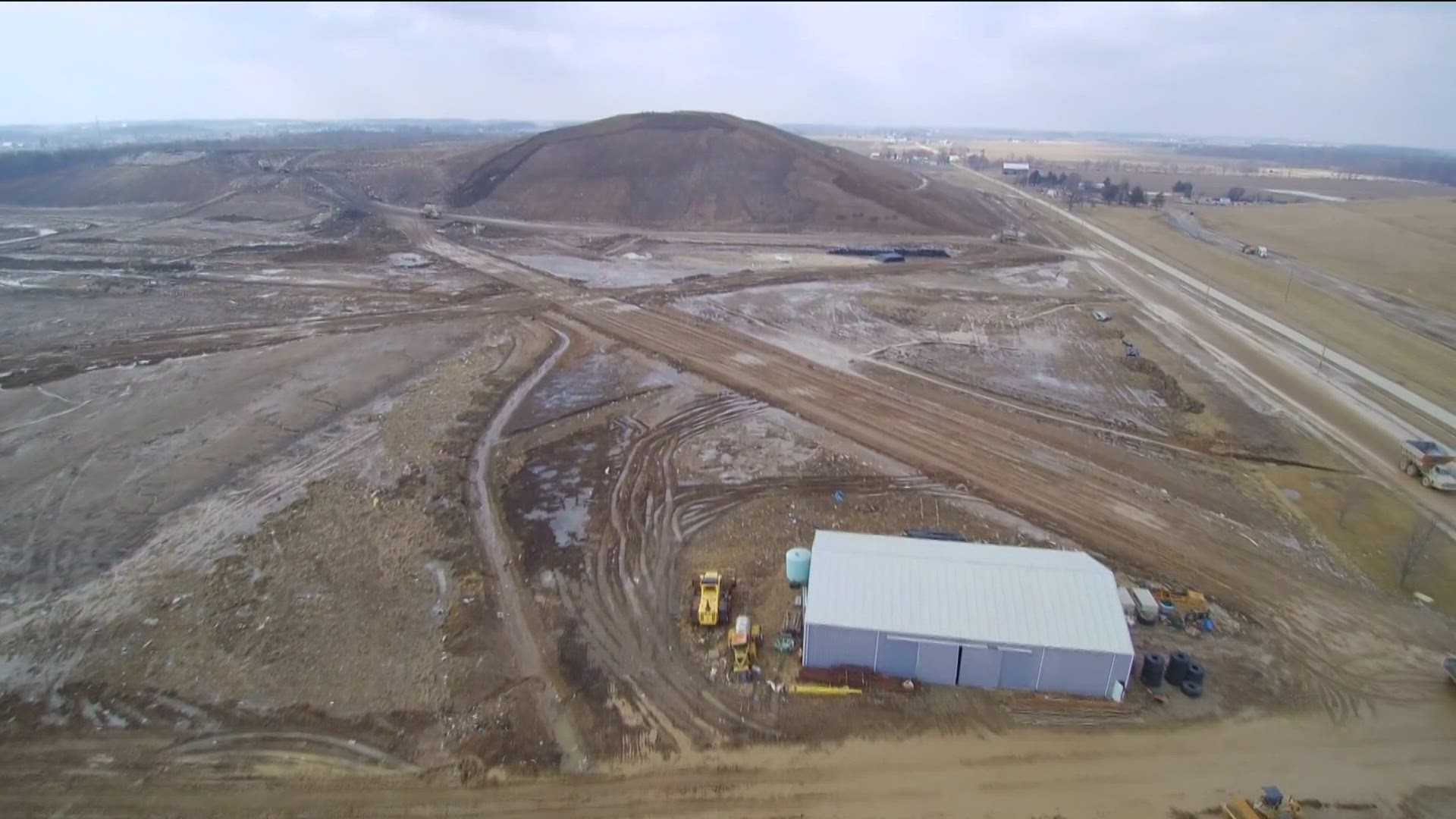FOSTORIA, Ohio — A controversial landfill in Seneca County wants to expand. But local elected officials want the state of Ohio to know they are not on board with the plan.
WIN Waste has been working toward expanding the Sunny Farms landfill since 2022.
State Sen. Bill Reineke (R-Tiffin) wants to make sure that decision is not made until local officials are allowed to also have a say.
"The question is, does Ohio want to be considered the trash can for the rest of the country?" Reineke said.
Reineke said that his biggest worry is allowing more out-of-state trash to be brought into Seneca County.
WIN Waste has requested that the state of Ohio approve an expansion that would increase the landfill from 261 acres to nearly 480, increasing the allowed daily amount of waste from 7,500 to 8,800 tons per day.
Reineke is concerned that none of these decisions are being made by a local entity.
"People coming in from the outside always telling us how we should be running things and we're the people who live here, and will always continue to live here," he said.
That's why Reineke wrote a letter to Gov. Mike DeWine and the Ohio EPA, asking them to wait on the expansion decision until state representatives can vote on Senate Bill 119, already approved by the state senate, which would give county elected officials more oversight over landfills.
The letter was signed by 46 other Seneca County elected officials.
"Trying to get the health department to have some more oversight there, and it seems like they hit a brick wall every time they're trying to get a little bit more local control and oversight at the landfill," said Seneca County Commissioner Bill Frankart.
Reineke also said no one in Seneca County can confirm that the incoming trash has been properly shipped and stored.
"Rolling through the state, starting in other states and rolling through here, whether they stop here or not, we should be concerned about that," he said. "The major issue that we have is making sure that we have safeguards in place if this business model were to continue."


The questions regarding shipping and storing are concerning for the environment's future.
"We don't know what's going to happen in 50, 60, 70 years with this trash," Reineke said. "And if it's all coming without safeguards, I think the constituents should be able to have their voices heard on this. This is about where we live."
WIN Waste spokesperson Ben Nutter provided the following statement in response to Reineke's letter:
"We thank Senator Reineke for recognizing the investment, not just the $100M+ over the last four years, but in our policies, procedures and technology to ensure our facility is one of the most technologically advanced in the country and operating at the standards of excellence to which the community deserves. However, his opposition to our right to increase operations is based upon the mistakes of previous ownership, which have long since been corrected.
The corrective consent order for emissions has been met and our current emission levels are more than 30% below those of 2019 when the corrective action was ordered, making it clear that the landfill does not pose a threat to the health of our workers, communities nor the environment.
We feel very confident that we are indeed, per the strict regulations of the OEPA, proving emissions compliance since we’ve had more than 250,000 air quality readings in 2023 and 99.9% were below action levels. Regular, twice-monthly testing of surface water and quarterly water and soils sampling, conducted side-by-side with the Seneca County General Health District, have shown consistently that the water meets the U.S. EPA primary standards for drinking water. Also, if water that encounters the construction and demolition debris in rail cars negatively impacts soil or groundwater, it would show through our surface water testing as the cars spend the most time within our grounds, but years-long sampling proves that it does not.
Finally, the actual daily average amount of waste coming to the facility would increase from 7,500 to 8,800 tons per day not 12,000 due to air permit limits. With the extensive additional supervision by the regulating bodies who performed five years’ worth of inspections in the last two months, coupled with the investment we’ve made, we look forward to updating all on the recent data to prove we are operating responsibly, safely and to the high standards of our host community."

